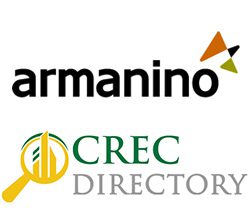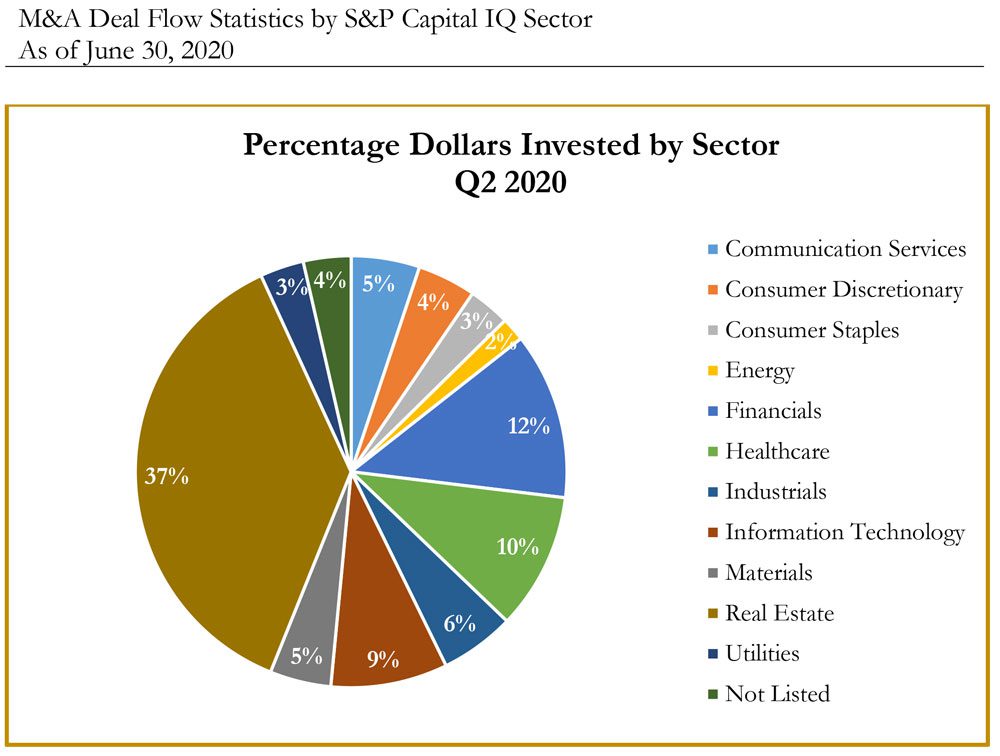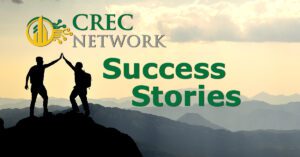Miklos Campuzano: Welcome!
Roger Tower: Welcome to our webinar on cannabis mergers and acquisitions featuring Armanino. My name is Roger Tower. I'm the Chief Marketing Officer at CREC. I will be your moderator today and I'm with Mike, Chad, and Mik, who will introduce themselves.
Mike Goral: I'm Mike Goral. I lead our cannabis practice for Armamino, and we have a very robust practice that is nationwide, and we have several clients that are publicly traded on the Canadian stock exchange.
Chad Zoretic: Hi, I'm Chad Zoretic, I lead Armanino's transaction advisory service practice, which helps companies either prepare for sale or to buy out other companies and focus in the financial due diligence space. I've participated in several cannabis acquisition and deals.
Miklos Campuzano: My name is Miklos Campuzano I'm the managing director of CREC.
I run the brokerage, make sure that. every transaction goes to the right hands, including Armanino and other professionals in the industry. And I've been involved in somewhere between 50 ish cannabis sales for license ventures at this point.
Roger Tower: And, we find ourselves at interesting crossroads and a lot of M and A activity happening in the market.
And we find a lot of changes occurring right now, where we have an overlap of business professionals and legacy black market people that understand cannabis. And so we've got a lot of shakeup in businesses and with the extra regulations and costs that you don't expect and access to banking issues and just extra fees.
Now we're finding that there's a lot of M and A activity happening right now with people trying to sell off their licenses or real estate that happens to find itself in the right zoning. And so this is a very timely topic. But even if you are at the beginning stages of running your business understanding how M and A’s work will make a very big difference when it comes time for you to actually take that big step. Having Armanino here with us gives us a really big picture of the industry as a whole of M and A's, but also having Mike here as one more cannabis specialists, we can really dive deep into more of what he's seeing across the industry.
This is going to be a round table and discussion. If you have some extra comments you want, please add it into the question answer, and we'll add that commentary. The video will be sent in about a week and a half, two weeks after we've edited it, put together a blog post with the top tips and we'll be sending it out through the CREC newsletter. So make sure you sign up.
So now I will get started with some of our first questions.I'd like to start with Chad and have you give us a quick overview of what a merger and acquisition is. Some of the advantages, how someone may do it.
Chad Zoretic: Sure. So, primarily driven by growth, right. And the idea is one plus one equals three, hopefully. But it was a quick way to grow your business and to establish different geographic footprints, as an example for our just overall market expansion. People often turn to M and A to achieve growth goals rather than just grow organically.They go grow through acquisition.
Also another driver of it is to kind of cash in if you will, like as a, , a business matures or the business owner matures to take some chips off the table and to to sell out for a retirement.
Roger Tower: Now, is there a general timeline with M and A's?
Chad Zoretic: In terms of like, from start to finish, like from one you get go to market and kind of complete the transaction, it varies all over the place, just based on the complexity of the business. But typically, that's where you would potentially work with your advisors on establishing the timeframe. Cannabis in general, typically takes a little bit longer because of some of the forensic things that we'll talk about later in this dialogue, but typically, it takes longer than everyone expects.
And a lot of times it takes up to six months to really just prep for a sale. It can take that long. So the earlier you get going, the better. And it also depends on factors like if it's a friendly transaction. So if you already know and have a relationship with the buyer, or if it's going to like an auction process where there's going to be several rounds, so all those factors kind of create differences in, in overall timelines.
Mike, is there anything that you want to add to that?
Mike Goral: Yeah. And I think that the, , buyers are certainly more sophisticated now than they were, , a couple of years ago. I mean, two years ago, three years ago, if he just had a license, then there were people just throwing money at just, , getting into the business, certainly in the California market where it's the largest cannabis marketing will remain prior to the largest cannabis market, even as other States become legal.
But now, , these, these. Investors have multiple choices of, of entities to acquire and make investments in. And so that makes them more picky. And so now they want to not look at just top line numbers, but look at how profitable you are, how well are you running the business? How's the management of the company.
And so they're doing a deeper dive, like other traditional M and A actions would be but now, as. Cannabis is becoming a more mature market. It’s starting to have the same sort of issues and things that other industries would have in M and A transactions.
Roger Tower: And so I'd like to dive into cannabis a little bit more, but before we get into that, and I'm looking for a little bit of input on what a business should really be doing to prepare for a future M and A, whether it's a year from now or five years from now.
Chad Zoretic: Yeah, sure.So in a lot of what we do when we're helping out, it's actually getting the financial records cleaned up. And so most investors want to see the business operating results on an accrual basis. So, it converting it from cash basis to accrual basis and really having sound internal controls and being able to explain everything where, and, and the trail of from seed to sale, as well as just the overall pathology of the cashflow for the company.
And I can't stress enough the importance of record keeping not only for legal reasons, but just for financial reporting reasons because as cannabis has matured, it's attracting more mature investors as well. So there's a little bit of a disconnect between maybe how some of the cannabis companies have been run versus the expectations of sellers that are going or buyers rather investors that are coming into the cannabis industry kind of for the first time. So it's kind of bridging that gap and that's one of the roles that we play.
Mike Goral: Yeah. And I would add that if you're a seller a lot of times you're focusing on, Hey, I want to sell my company for $10 million, $20 million, $50 million, but you're not going to get that valuation.
And someone's not going to buy your company for $50 million. If you don't have good books and records and things that support why they should pay $50 million for your company. So, , this stuff is kind of maybe boring and you'd rather maybe spend more time building the business, building the brand, doing the fun stuff.
But if you don't pay attention to this back office stuff then , when you're ready to cash out, you're just not going to get what you're asking for.
Miklos Campuzano: From my perspective, it actually makes the asking price ludicrous, because if you don't have any of the financial stuff to back it it's almost like you don't know what you're buying.And that's the major issue that I find, , in brokering these deals as well.
Mike Goral: Yeah.
Roger Tower: And make, I'm getting a little delay on your end. I don't know if you have a heavy strain on your internet or something.
Miklos Campuzano: Okay
Roger Tower: So to tie all that together, , are, are you seeing that that is causing M and A’s to fail? Someone comes to you and really looking to have an M and A happen, but it's just too much difficulty to get the books back into order.
Chad Zoretic: In extreme cases. Yes. But in most cases it has done two things. One is really extended the timeline to complete the transaction and two, while it may not have killed the deal, it did impact valuation and, and their lower valuations or discounts given due to information gaps.
Roger Tower: And we've got a long webinar and blog posts with Armanino from the past about valuations. So if you haven't yet watched that webinar, I would recommend you going back. It's on the CREC website and blog. So go check that out to get all behind the scenes evaluations. But this would be a good segue for us to just touch upon that briefly.
Mike or Chad would either of you want to just give a quick overview of business valuations?
Mike Goral: Yeah, I can say that, , patients in general are gonna vary. Just like if we were talking about the wine business if you have a Napa cab, then it's probably going to be worth a lot more than if you have a wine that's from Michigan or some other, , region.
And so it makes a big difference where you're physically located. What is the competition that you have in your area? Are you a cultivator? Are you a manufacturer? Are you vertically integrated? All of these factors are going to change how the business is going to be valued and is your brand known within just your location or is it already in other States? So we're seeing a lot of cannabis companies that are expanding outside of California as it's getting saturated to get a higher valuation in other regions and other states.
Roger Tower: All right. Well, I'm ready to move into some trends in cannabis, M and A. Did you have anything to add on that, Chad?
Chad Zoretic: No, I think Mike covered it pretty well on that, we can probably proceed forward.
Roger Tower: So we’ve got three main trends which I'll quickly go over and we'll dive into more details. We have verifying your books and records, your taxes, and how the industry is moving East.
So I'd like to throw the ball back into Mike's court excuse me, like the ball on the Chad's court. And would like to know more about from the sellers and the buyers side, , the importance of verifying your books and records and tips.
Chad Zoretic: Sure. When we're analyzing companies in the cannabis space, one of the challenges is many of them are not using traditional banking institutions.
And so verifying the, the cash activity takes is a lot of focus and is a little bit more difficult to do when you don't have a financial institution in place. And so that's part of why it takes longer, but that's also part of why you need to have really good records to keep track of that, especially if you're not using a credit union or something along those lines. And that is changing, there are more and more options for companies to use to where they can track actual bank activity.
That's one, the other area is in just general, , inventory tracking that and just tracking your costs All these things like are what investors are interested in looking at, but, and it's true. It may not be the sexiest thing to talk about. But they're all really good things to run your company with. Like you should know, like have to have your finger on the pulse. So that the sooner you can get this stuff set up the quicker, you're going to get better information to run your business by. So this is not just about selling your business down the road.This is about improving the operational excellence of your business as well.
Mike Goral: Yeah, because you want to make sure that you don't have cash or product or something going out the back door. I mean, if you're losing a thousand dollars a week in cash or product, I mean, that's gonna, at some point affect your business and, and you just need to note this, this kind of thing.
So it, it helps you run your business. As Chad was talking about much more so than looking at the end game of trying to sell the company.
Roger Tower: And so that may be a little bit of, kind of an aha for one people that want to do M and A activity in the future. Do you have a positive uplifting message of it's doable if you haven't been doing it in the past year or two or three?
Chad Zoretic: Well, it's certainly never too late to start, , I mean, and it is doable. I mean, and it takes, a little bit of discipline and, and it's tough out of the gate , to make that, but once you push the Boulder up the mountain, It's very doable. And most companies really like the information that they get back because they can make better strategic decisions.
There are firms like Armanino that can help push the Boulder up the mountain, certainly. And, the big push is going from this concept of just pure cash basis to accrual basis accounting. And, and then also just getting some of the systems and controls in place to dot your I's and cross your T's.
And typically, it's not a very long time period. This is not like work takes two or three years to implement. It's usually, , a quarter or two and you have a good basis of conversion.
Roger Tower: So you interact with a lot of our clients. Would you say that we often have these kinds of complications with the cash basis? You're muted right now as wel.
Miklos Campuzano: There we go. Sorry. I hadn't, I was muted on both. Is the audio better this time?
Roger Tower: Yes, sir.
Miklos Campuzano: All right. Perfect. It is common because a lot of them times we're dealing with some people that have been operational since 2016, 2017, when we were on temp licenses, when the restrictions in the rules weren't as good or as stringent, and they've continued those operations into now their annual licenses of provisionals and annuals.
And unfortunately we do run into those issues. , you've got a company that says they're making X. But somehow their books look nothing like they're making X. Now they may be making X, but some of it's going out the back door, , maybe the owner doesn't know it, but all that stuff is going to impact the valuation of that acquisition.
Because if the information that is provided and factual and on paper, doesn't support what you're asking for. I mean, it's not something that's going to go favorably in any sort of valuation acquisition or any, anything of the time.
Roger Tower: And one thing we haven't touched upon really yet is the buyer side of things, where it may be a little different than other industries that they're looking at.
So Mike, I'm gonna throw it back to you. Do you have any input or may Mick, would you like to?
Miklos Campuzano: Yeah, I can add to that too. So a lot of the buyers, just like Mike was talking about earlier. They are more professional. They're coming from backgrounds, which are different than the original, call it, cannabis Vanguard.
And there we're going to expect information that you may not have. And if you don't have it, they're just going to pass because they don't want to deal with that type of unprofessionalism, at least from their standpoint or the legal minefield or tax minefield, they may be buying themselves into. So that is a common thread.
And I would say about 40 to 60% of our clients, somewhere in between there are starting to be people that fit into that category.
Mike Goral: And I would make like the analogy of like, when you go out and get a home loan, you send the bank your, your pay stubs, you send them your bank statements, you send them all this information, you think, Oh, they have plenty of information to know whether or not they want to go forward with this.
And then they always want something else. And that's going to be the case with M and A's with cannabis even more so, because no matter how much information you give to the investor, they're going to probably want one more piece of information. And so you just need to, , not get too frustrated and upset about it, but stay calm.
And they're just trying to, , make sure that they have all the pieces of the puzzle. So when they lay out all that money, they know exactly what they're getting and they just want everything confirmed as best they can.
Roger Tower: And I do have a question from the audience, Forest, thank you. He's saying that he hears a lot of reference to California and Canada and the Northeast, but are you seeing any interest in acquisitions of business in Colorado?
So I'd like to ask, , does the location of the business really matter when it comes to your M and A activity and is one place maybe better than another?
Mike Goral: Well, certainly there's a lot of interest in, in Colorado because it's a mature established market. But at the end of the day, it's still not going to be as big as say a potential California company.
It just really, again, it's going to be dependent upon, what area of the business they're in vertically integrated or not. what is their brand, are they expanding their brand outside of Colorado or are they just staying concentrated in Colorado? So it's hard to give some generalities, but most of the interest has tended to be in California, just because the market is so much larger than Colorado, Washington, Oregon combined really.
Miklos Campuzano: So I want to add that as well. And for the specific reason that Colorado still has some licenses that are being issued in the wrong locations some of the larger operators may have five, six licenses pending two, three more. When that dries out that well is, let's just say tapped out. There's going to be a lot more interest in mergers and acquisitions.
And, , Mike hit the nail on the head.The price range is definitely going to be better in California from a seller's perspective, but Colorado is a developed market. There's more data to be shared. There's more information that let's just call it an educated buyer or group making acquisitions is going to be interested in.
Roger Tower: Okay, let's talk about taxes, we're in a legal market. Yay. We got to pay taxes. Ooh. Okay. So let's start with the buyer. What should the buyer be looking for in the seller's tax returns?
Mike Goral: Well, you're going to do your due diligence and you're going to want to make sure that two 80 E is going to always be the primary issue that, that besides the tax return and like anything on a tax return, two tax preparers can see the same set of facts and come up with two different answers.
But. It's a matter of how aggressive are they getting onto ADE? And some are more aggressive than others. And there just needs to be documentation and workbooks and other things to be able to refer to, see why they took the position that they did. Again, it's just one of those areas of degree, but you got to pay a lot of attention to now as much attention as you're going to be paying to the federal tax return and two 80 E consequences in the state income tax return for that matter.
You got to look at the local taxes as well. Cause sometimes the local tax issue can far outweigh the federal tax issue in two 80 E. So those excise taxes, cultivation, taxes, sales taxes, property taxes, all these other things that are there need to be focused on as well because you can have everything else right. And if you haven't submitted your excise tax timely, you could lose your license. Well, then it doesn't really even matter what you've been doing elsewhere in the company and how well your brand is selling. If you lose your license, then there's nothing to purchase.
Roger Tower: Well, Chad, when you're looking at other types of M and A's outside of cannabis, do you see this kind of emphasis on tax payments and how they're doing their modeling there?
Chad Zoretic: Sure, but for businesses outside of the cannabis industry, there, it's a lot more, I guess, mature, formal and different types of tax issues. It could be more like is the S-corp election valid and are they really a C Corp? And then that type of thing, whereas we're in the cannabis space, we've literally just stubbed our toe on just taxes that outright just were not paid and should have been, and it becomes a liability down the road. So there is a high degree of scrutiny. I would say tax gets the most emphasis out of any of the other industries that I work on. And then the second thing is just the overall, trying to figure out the pathology and amount of cash flow and proving that out. Those are the two areas that I encounter the most.
Mike Goral: Yeah. And then another thing that buyers need to be aware of is success reliability. So if the seller had these tax liabilities that they didn't pay, or they ignored, whatever the case may be, and you do this dea,. and then two years later, the company gets audited.
And all of a sudden there's a hundred thousand dollar liability that was due for something that occurred back, let's say in 2018 or something. Before you bought the company, you could still be on the hook for that because the state or federal agency isn't going to say, well, we'll go back to the previous owner, they're going to go to the current owner and they say, we're going to get the tax from you.
And then if you want to go back to the previous owner and try to get it out of them, when they're in The Bahamas, who knows where that's your problem. So you gotta be very clear.
Roger Tower: I iust experienced that with purchasing a scooter, I had to pay $500 registered to get back on, and I had all these penalties and fees and I went back to the seller and they totally ignored me.
So we wouldn't expect that to work out for you. So, let's talk about the seller a little bit more, what should they be expecting from that tax perspective, do we have any good advice other than pay your taxes?
Mike Goral: Yeah. I mean, you just, you just, you just can't like skirt around the issue.
I mean, because if you get caught, when you get caught and this industry's all going to get audited - so you just gotta be prepared and make sure that you have ,again, good books and records. All of this kind of comes back to a central theme that you got to keep all of this documented.
I mean, this industry., in the past, you might not have kept good records because Hey, if you get audited, it's your word against theirs. You can't get away with that anymore. So you've got to have everything buttoned up, from a books and records standpoint, not only internal accounting, but also, taxes as well, supporting your tax positions.
Those are all going to be very important. And at some point it's going to come back to bite you.
Chad Zoretic: Yeah. And, and also as a, just as a, like from a business owner perspective, if you personally own the business and you sell it, that's going to increase your likelihood, , increase the possibility of getting, audited as well, just on the personal side of the fence too.
So it just, it triggers an extra red flag.
Roger Tower: Yeah. I've got a question coming in from the audience. Is the focus of venture capitalists and buyers on the cashflow before or after tax?
Mike Goral: I would say that in the past it was before taxes and it was just looking at gross, but now it's matured. So that now they're looking at after taxes, EBITDA and see what falls down to the bottom line.
Roger Tower: All right. So continue forward, sometimes mergers and acquisitions are a really big, positive thing you've grown and someone who's ready to just take over and give you that big top dollar that you were hoping for five years ago. But other times you may not have gotten where you want it as a business, but you have a license.
And so even if you're in the red, there's still value there. but bankruptcy isn't really allowed for cannabis companies and you can't just shut down. So, how does an M and A look in that type of situation and turning that into maybe more of a positive by grouping of someone else.
Mike Goral: So, for federal purposes, since cannabis is illegal, you do not have access to the federal bankruptcy courts.
And so you can't get federal bankruptcy protections at the state level. It varies depending on the state, but many of the States have come up with some bankruptcy, limited bankruptcy protection that provides you some benefit against creditors at the state level. But again, it's just not as good as if you were to be able to declare federal bankruptcy.
And so many of those liabilities could still transfer over to the owners and officers and directors of the company.
Roger Tower: Mik, have you seen any of those experiences and have they ever panned out properly on your end?
Miklos Campuzano: So, unfortunately I think Mike hit the nail on the head. You've got to think about all these things when you are doing a sale. You cannot expect the close of escrow to be the end of your responsibilities to fees.
It just isn't. And fortunately some of the people we work with are working with groups like Armanino and other people that know what they're doing, but yeah, I've seen this issue, hit people that expected to just walk away with what was close of escrow. And it just doesn't work that way.
And unfortunately all we can do. And my perspective is to advise them as who to contact to get the right answers. I unfortunately, I'm not a tax attorney or, or CPA in any way, shape or form, but we do advise people to think about these and many other considerations during a transaction and it kind of behooves them to go do it.
Roger Tower: And business restructuring, selling off just a portion of the business may also be an opportunity?
Miklos Campuzano: Oh, yeah, absolutely. And very often I've seen I've seen Colorado businesses that don't want to come here touching back on to a previous question and they just brought their brand out here and someone's buying their brand with a license. They've got no operations, no revenue, , that's an opportunity as well.
But of course it'll come with its own type of taxation woes. So any type of structure brands have value licenses, have value, GPS have value, everything has value. It's just about understanding when you add any sort of value that has anything to do with cannabis immediately, you start looking at what your additional responsibilities are going to be. And I think that talking to the right people clarifies that for you and that's something that we have discussions you would have with property owners that are leasing Tthey need to understand the implications of everything that's going on when they sign anything in regards to cannabis, because of these implications.
Mike Goral: Yeah. And just to touch on what Mik’s example there, if the Colorado company ends up licensing their brand to a California company, they're going to have California source income. And so they're now going to have to file a California tax return. So they can't just take those like licensing fees, royalty payments, whatever you call it. And even if it's getting deposited in a Colorado bank you can't claim that as Colorado income cause, Colorado would like it, but you're going to have to pay California taxes on that California income. And so it opens now you to exposure for other taxes that you may not be aware of if you're not prepared.
Roger Tower: And that's why it's wonderful to have someone like Armanino available for questions. So if anyone does have questions after this, I will be sending a contact info for you to get in touch with Armanino. And I'm sure they'll be able to give you some quick advice and if you want bigger, larger, more paid advice, I'm sure they can lead you in the right direction there as well.
We'll circle back around more of the services our needle offers later. I'd like to keep moving with that conversation with the industry moving East. I mean, we've got some money that's sitting on the sidelines. We've got places starting to open, five States made changes, big changes here in California as well.
So what's happening as we continue to expand here?
Mike Goral: Well, clearly there is there's this expansion going on. I'm sorry.
Miklos Campuzano: Go ahead. Take it. And then I'll, follow up.
Mike Goral: Well, clearly there's an expansion eastward, and , we saw that with Michigan and Illinois and Massachusetts, that became adult use recently now, New Jersey.
And so this Northeast corridor is going to be as robust of a cannabis growth area as California was three, four years ago. And of course there's a lot of money that's been sitting on the side that has been waiting for the Northeast corridor to become adult use legal. And that's going to spur a lot of interest and a lot of people want to, invest and get into that side of the business on the ground floor, basically, because you've got so many people that live in such a concentrated area, a one hour's drive. You can be in three or four different states, depending on where you start.
Miklos Campuzano: Absolutely. And I would add, just from a perspective of clients that are in our pipeline, just so everyone understands that as the, as cannabis moves East, there were some people that got into the foreground and areas like even Pennsylvania, which are kind of strategically located between or not between the nearby New Jersey, New York and all the areas that are coming online.
A lot of people are using the municipalities that are online right now to gain experience before the other municipalities start accepting applications so they have higher chances of, of getting licenses. So one of the main things that I would say is that, ideology for the people that are kind of in their startups slash, second traunch of licensing is already starting to look at New Jersey, , or even other States that are even central towards licensing in the middle of the country.
They're looking at it as an opportunity now. And then the multi-state operators they're already they're requiring licenses. I mean, you can go to Pennsylvania right now. And they have 50 licenses and they're mostly owned by certain groups. So one of the goals that I think people need to understand is there is a strategic foundation for a lot of the companies that have gone out there.
And now what they're looking to do is to acquire anything, apply for anything in any of these municipalities coming online. And they started building their brand on the East coast already. So that's going to start.increasing dramatically now that the States are opening up and the foundation has already been set.
So, it's around 30% of our pipeline, which it wasn't even 5% call it one month ago, two months ago, three months ago.
Mike Goral: And yeah, like Mik was saying, these entities are strategically planning ahead and, and New Jersey, for instance, the people that have the medical licenses now will be the first to be able to sell adult use when it becomes available because they've got the infrastructure and everything already set up .They already have the license, their license will just now allow them to sell to adults 21 and older. And so they will have an immediate advantage over anyone else that makes an application starting today or beginning of the year.
Roger Tower: There are many ways to find some of these emerging markets, so you can talk to the CREC team and we can help point you in the right direction of different locations we think are strategically well-placed. So we've got another good audience question. I'm going to send it over to Chad in the big picture first.
He's asking are most acquisitions looking to keep existing management and staff and are they willing to acquire and provide the capital for additional growth? So would you say that in, in the overall M and A activity industry, would you say that often they are looking to keep the existing management and staff, or are you finding that that's not always the case?
Chad Zoretic: Well, the usual response, it depends. Right. But a lot of times they are. It depends on if it's a vertical integration type of situation where you need that skillset, versus a what I'll call a tuck-in scenario, where it's just adding another store. Maybe the owners don't go with the business, but the people who are running the business on a day to day basis stay. So it really is kind of all over the place.
I'm going to kind of go back to the, the segment before is in addition to the geographic expansion and kind of the, maybe some new investors coming into the space, it's pretty interesting to see the business.
There's also been a lot of M and A activity with businesses that are one step away from the cannabis asset as well. So they may not have any cannabis assets themselves, but they are servicing the cannabis industry. So we've seen a lot of activity in that space as well, but in terms of it's a combination of folks basically staying on board and continuing, and it's also a combination of investor types, those that are willing to make that platform acquisition where they are willing to put the capital in. And in that case, usually the, the, the, the team stays on there because of the re relying on their, um, that company's expertise to build the platform for future talking acquisitions.
Miklos Campuzano: I would add to that, that it also really depends from our side. I mean, even from the buyer's side, they want to make sure if something's being run well, then they're buying, those employees, right. They want to buy something that's doing well. But a lot of times in cannabis, there's a lot of facilities.
The ones that are doing well are expensive. Let's be honest. Right. They actually have their books in order. They have their employees in order. Sometimes buying something that is doing okay. And making it more efficient is the angle that they go in. And at that point, it's going to be a decision where those employees do end up getting replaced and it's because it needs to be run as a better tight, tighter ship.
And we're seeing a lot of issues with keeping employees and when you're changing shifts, sometimes people like going with that ship, that's leaving because they have more of a what's called a familial bon with each other instead of an employment type bond, just because of the way cannabis was for let's call it three decades, four decades.
Roger Tower: I have a friend up in Oregon who had his license for sale for a year and a half, two years. And he went through all the effort to get it just to the point of operational. And so by the time that it was being sold they wanted to keep him male hall consultant because he had built the business and you knew exactly how it worked.
So he had put himself in an indispensable position and now he's sold the business and has a consulting cash role to support them. and last I saw he was doing pretty well. So, are you an indispensable employee? Do you have something of extra value? And that probably would be a bigger questionI think then on a case by case basis of the merger.
Okay. We're getting towards the end and we're going to touch upon the election a little bit. We have a discussion here for valuations and market share and presence, and I like to just kind of open it back up to Mike, Chad, Mik there's any kind of conversation that we haven't touched upon yet.
I'd like to kind of circle back around any other points you thought were not touched upon.
Miklos Campuzano: Well, I think one of the Paul Sores made a question as to investors, VC firms they're in the webinar chat. From my perspective, it's all of the above. I mean, it can be anything, it can be a group, it can be an individual, it could be a VC, could be a VC that brings in their own operating teams.It could be a VC that's hands off. I mean, it's all over the place. There, there is no one type of investor in this industry, unfortunately, that we can point to, at least I can't. I see them all over the place
Roger Tower: Well at CREC we'll get some investors that have $10,000 and they're looking to put it into the cannabis industry.
Miklos Campuzano:, I mean, I know we've been working on doing all kinds of interesting things with people with lower budgets, but there's, there's only so much you can do in the industry. And there's only so much time in the day, and there's plenty of people that would rather have their money in cannabis, not in stocks because there really aren't in the US stock exchange.
I don't think people have too much experience with Canadian stocks. So they want to find a way to spend 10, 20, 50 grand in this industry. And unfortunately getting operational or even investing in a business at that point, just with that traunch is not going to be enough. I mean, we all know licensing in itself is on average costs you anywhere between a hundred thousand to a quarter million dollars for license. So it's a tough thing to get into. And that's why when we, when I say investors, I'm talking to anyone that's willing to invest in cannabis, willing to do the due diligence, and is willing to actually execute.I could care less what your background is or where the money comes from. Cannabis industry needs investors in Canada.
Mike Goral: The other thing I would add to that is that there are a number of foreign non US citizens that are looking to invest in this industry coming from Europe, coming from Asia.
And so the interest in this industry is, is really worldwide because the great thing about America is that we've got these laws and structures and things, and so foreigners feel very comfortable making investments in what is a risky business, but at least under US laws. And so that's, I think very comforting for a lot of foreign investors too, to make investments in the cannabis industry.
Miklos Campuzano: Yeah, I know. I know we've been on a lot of calls with clients from overseas. I think structuring it and explaining from a legal standpoint and from a tax standpoint, what their implications are, is something that we've been very good at doing. Where I think a lot of other people have been dropping the ball is specifically countries that don't understand US law and an investor from those areas.
Roger Tower: Mik, do you want to touch upon the MSOs conversation that we were having? Some of the difficulties of once you've really spread out more.
Miklos Campuzano: Sure. I mean in general, yeah. So a Multi-State Operator, his definition of MSLs for future reference. And the interesting thing about MSOs in the space is at least from my perspective, expanding into other States is difficult just because you need to understand every single different tax structure that you're going to have to deal with.
And if you're in. No 30 X dates or moving on, I think we're moving on 33, 34, 35 right now. I mean, that's, I mean, that's, that's a beast of an itself. I don't know how many companies would have the internal structure to handle something of that complexity.
So I don't think there are any, so, I mean that is one of the things that I think affects them, MSOs, the most. I have conversations with MSOs and want to come to California. And they're like, Oh, I'm going to go in there, what am I going to be walking away with 70%, 80% of profits? And I'm like, not in California, man, that this doesn't happen. Rule of thumb, you're getting making less than 50% just rule of thumb, like you don't even need to think about it too much. But then as soon as you start having discussions into the in depth ways to create structures, to save the money, it helps assist the episodes and realizing that we know what we're doing. We can structure these things in a way that's going to be beneficial to them.
But California is, I would say the most litigious and most highly taxed area of municipality, state, because it goes across the board than anywhere else. So it's important for them to understand mergers and acquisitions.
You're making sales here and sometimes divesting from California.Some of them I've seen some of them leave. So that's another thing that they need to take into consideration and almost always comes back to your tax implications, whether you're making a diamond, not because when you plan to, you're still going to have to deal with those tax implications.
Roger Tower: All right.Let's briefly touch upon the election. What does this mean for us? Mike, tell us.
Mike Goral: Well on the one hand, I think it's good news that we have Biden Harris Presidency a White House but on the other hand, , Biden isn’t that gun-ho about making cannabis legal, I think certainly he wants to deal with some of the social equity issues of the past.
And work it from that angle, but as far as making it federally illegal, I don't think he's going to be a big promoter. Kamala Harris as attorney general in California, she didn't really do a lot of favors for those of us that were promoting the cannabis industry.
And so, even though she made many speeches about making it legal, I think it was more to get votes rather than actual action that will take place. I think that the main thing that will come out of this is it looks like we're going to have a very close Senate. The Senate has been always the issue with trying to get any sort of cannabis law legislation passed.
And I think that we may be in an environment where at least the safe banking act, which would allow cannabis companies to be able to bank like any other normal company would be the biggest thing that would happen here in the near future that would be positive for the cannabis industry.
Miklos Campuzano: I would say that I'm optimistic because of the fact that we have people that are going to look at this from a logical perspective. But I don't see, like Mike was saying, any push towards getting federally because legalization in the next year or two, I just don't I see it. Now the safe banking act, it would be an immense benefit because everything that we do in this industry needs to be on paper.
Just that's one of the whole points of what we're talking to. They make sure that everything's on paper and it's tough to have things on paper when you have cash. Because now you've only got one source of the evidence, which is your own books instead of secondary sources, which would be bank statements, sign-offs from bank saying that you have these assets and you've had a balance of X over X amount of time.
Those are the types of things. It gives security for some of those advanced investors and companies that are making acquisitions that are the tools of the trade. It's, it's part of your due diligence and we just don't have it in cannabis and getting someone to understand that is a process that takes time and make deals take longer.
And it's one of the reasons why acquisitions take so long. It's a huge education process every single time. And so I think politically they need to take a look at solving some of those bottom side issues. And we're worried about federal legalization until we have a Senate majority that is thinking maybe a little bit more on the federal legalization of cannabis and how to capitalize on taxes.
Roger Tower: All right, do you have any more questions? Make sure you keep sending them in. We're getting close to the end of our time here. I've gotten to look back at our past questions.If you want to follow up that subject.
Mike Goral: Oh, one quick follow up to, to all of this is the fact that as cannabis moves eastward as we were been talking, the States that are going to be coming involved with this are States that have much more political power,New Jersey, New York, Pennsylvania, these are going to be big States with a huge population that then will have a greater influence in both the house and the Senate.
So I think those things are also something positive for the industry.
Roger Tower: Okay, so what is the best valuation method for raising seed funding in the cannabis industry? And is there one underlying financial assumption that most people miss don't consider when creating a proforma? And can you get a higher valuation, but some strategies?
It seems like a little bit more of a general question. I'm not sure if there's much specific to the cannabis industry there.
Mike Goral: I can just say that no matter how much you think you're going to need and working capital and your proformas and all, it's going to need to be double that because it always costs a lot more than you expec. There's issues and things that come up that, that increase the cost of running your business.
And so whatever your number is, you need to double that and that would end up being maybe more realistic projection. People were putting projections on their performance of 500% annual growth and you just can't do that and can't sustain that. And there's no way to really support that.
And the industry is now matured enough where you need to be more realistic about those projections. Because again, it will come back to bite you if you don't deliver.
Miklos Campuzano: From my perspective. Let me touch on that real quick, that when you're doing your projections, they're going to be looking for the finer details. And I think a lot of people miss operational costs. And when you don't understand your operational costs, your EBITDA calculations or, even your two EDE implications for investors, if you don't touch on that in your performance, it's not factual.
It just doesn't make any sense. And it's not going to be substantiated. So that is going to have to be the one thing that most people spend the most time on. And Mike is right and you're going to need more money than you think. A lot of people laugh at me when I tell them how much money they're going to need.
And I'm like, I'm sorry, that is the threshold where this business is going to pick up. And if you don't have it, then I'm, I'm going to tell you right now, you're going to end up selling your license. And a lot of people will, will, will frown saying, Hey, it's too expensive.
And it's just because of all the regulatory burdens, the time that you need to hold on to things. So you've got to understand all of these things are sometimes even up in the air. And right now can't beggars can't be choosers us to where we get our licenses too much. But if you do the right research, you can mitigate some of those risks.
So I think one of the important things to do is to understand and ask the right questions and be sort of pessimistic when you're building out these things, because that's the best way to get funding is to actually be as close to reality as possible. I mean, that's all it is and you still won't get it right, but you'll be closer.
And that, that makes them more comfortable.
Roger Tower: All right we have the question about the economic effects on federal legalization for states that are not as strong as the markets that just legalized. And I think that's a tricky question because we're not really sure what federal legalization actually would look like. But I like to throw that back that toMike, would you like to go into detail on that?
I feel like it would be a scramble.
Mike Goral: Yeah, it would be an, and I think that one of the things that's going to influence the states to move forward before there's any federal action is this COVID pandemic. During this time, the states and local governments have lost a ton of revenue on sales taxes from restaurants and bars and other industries.
And so there is this pressure for them to generate funds, to be able to keep things going without receiving funds from these restaurants and bars. And so making cannabis legal is, is a great way to bring in tax revenue without increasing property taxes, individual income taxes, and corporate income taxes for that matter.
So it's a way of generating funds without making your electric all upset about the higher cost of living in that particular jurisdiction.
Roger Tower: Okay, Chad, I'm going to send it back to you. I'm not speaking about the cannabis industry, , for somebody who's preparing for an M and A in the future. What really are your top tips for when you leave this call, and then moving forward, ongoing?
Chad Zoretic: I would say you're not gonna avoid diligence. Buyers are going to do their homework and you have to be prepared. So, gone are the days of kind of just handshake deals. The investors will do their homework. And so that's step one.
And step two is through the exercise, use it to get better operational knowledge. Use the homework that you're doing to run the business better and to not run it just as a personal piggy bank type thing. To run it as a mature business that's, more and more investors have that perspective.
So it's, it's worth it. It's worth doing the homework to make your business more attractive and, and saleable at the end of the day. Plus it's a better business, anyway.
Roger Tower: Mike, would you say that there's anything that's often overlooked by cannabis industries in terms of their financials?
Mike Goral: I think that what they don't do is, is that they don't talk to their advisor soon enough.
They'll go out and say, Oh, I just signed this licensing deal with this other company. And/Or I'm looking to acquire this other entity and I've already made a deposit and I've already started moving some equipment over there. And the worst thing you can do is make decisions without talking to your advisor and understanding what are the legal ramifications, what are the tax ramifications. When people do things and then they come back and tell me about it, it just makes sense, everything's so much more difficult. It's much better to know on the front end. Hey, here's the pluses. Here's the minuses. And let me consult with you about this rather than hearing about it after the fact.
Roger Tower: Okay, we've got another question. Does Armanino see more buyers or sellers at this point in time, but I actually, I want to talk to Mick first and then we can talk about the bigger picture. We get a lot of inquiries through CREC website from VCs to averag Joe's looking to buy $10,000 worth of stock.
So Mik I'm wondering does it fluctuate too? We have different seasonalities between these buyers and sellers, but I guess at this point in time, have you seen an influx in one of the sides?
Miklos Campuzano: I would always say the buyer side always outnumbers the seller side.
Now, as soon as you start going into qualified buyers, I say it starts getting closer, but you're still going to have a little bit more of a saturation of buyers and specific demographics or not demographics, but sections or verticals of the industry. So when you're looking at retail, you can almost say the buyer's out number to the seller, by 101 because that's just a market which has been, especially in every municipality that I know have been captured at some sort of level.
Whether you're an LA, Detroit or, PA they're all capped. So when you have those types of limitations, you have a lack of inventory and then you have a methodology to create extra value as a seller. It starts to becoming prohibitively expensive for buyers. And so buyers are always just sitting there looking for a deal.
Now on the seller side I think Roger hit the nail on the head.There's a lot of seasonality to it, especially on the outdoor mixed light grows. They start selling during the winter,. Usually because everyone's prepping for growth in the spring. And so they want to get licenses, make acquisitions. They want to get operational before March .At least get something in the ground and then they want to be full force in April and May.
And so it really just depends on which vertical you're taking a look at. I'd preface just that by saying qualified buyers are way different than buyers. There's plenty of people shopping that can't buy licenses or do any sort of merger acquisition. I mean, they're more applicants at best and it takes time to educate them to that point.
If you're not going to be able to afford a license. You wouldn't be able to have enough money to run it. And buy a license at the same time. So I'm not gonna make you go into I wouldn't suggest you going into a route, which you're not gonna have enough money. And then 50% of them will say, Oh, I'll go find an investor.
And the other 50% will say, I'll go get more money on my own and may never come back. Or maybe they come back and it starts slowly turning into a viable person, a viable buyer, but the trick is always educating them. Before they make that decision. And , kind of learning where the market really is at that point, what cities are coming online.
I think that's something that CREC does very good. We have blogs, we have news emails that go out every single week. And it's just to educate people because we can't really have a qualified buyer or even a seller, unless they know actually what's going on in the market and understand a hundred different deal points, to be honest.
Roger Tower: Yeah, that's a great point too, because the sellers really do have that seasonality around the municipal licenses. Like there are the different awarding timelines. And so you'll probably find a really big uptick in a very small community, just because now the municipality is coming online. And if you're looking three months after that, well, you just kind of missed it.
So knowing where those emerging markets happen are a good way for you to be able to find yourself in the mix. Otherwise, you're going to find yourself buying an overpriced license.
Miklos Campuzano: Of course. Yeah. And when you're capped out, there is no choice, so you're going to buy that overprice license.
And if anyone's interested in historical data for that, you can just go check out real estate leases and real estate sale spikes, and you will see exactly when a city went online for cannabis. It's very simple to see. You will see anywhere between 50 to a hundred to 200 properties getting leased or purchased on a spike, which is completely out of the normal, in any historical that, , look at any data trends for real estate.
Roger Tower: Alright. Well, first of all, I want to say thank you to Mike and Chad for being here and spending this time with us. I hope you all found it very educational. I'm going to ask for one more comment from each of them and we're going to start wrapping up. So Mike, do you have some words of encouragement or the entrepreneurs out there?
Mike Goral: It's just a great, exciting time for this industry. It's always been dynamic and changing and everything is happening very quickly. But because of that, speed you've got to be agile as well as the industry is. And so just be prepared that. Things don't always work out the way they do, and you have to be able to pivot and change and go with it.
But it's an exciting time. I mean, there's so many new products and things that are coming out . We barely touched on all the different issues that are involved in this industry, but the innovation, the things tand the products and things that are coming out are just fascinating to see.
Roger Tower: And you need strong partners. You're not gonna be able to do this alone. And so Chad, can you tell us a little bit more about the big picture of Armanino and what you're trying to accomplish as a company?
Chad Zoretic: Sure. At Armanino we take a very holistic approach and the neat thing is we really can help out companies at any part of the process, whether it's that initial flipping from cash to accrual base and need initial cleanup to ongoing record keeping.
We do that a lot to doing the due diligence for buyers, to doing the prepping the sellers for the diligence process. So we are with you like every step of the process and can insert ourselves into wherever in the process you need help with. So, and that's both on the financial and tax side of things.
And we have a dedicated cannabis industry practice within Armanino.
Roger Tower: All right. Can you take a moment to talk more about CREC and how we're supporting along the process as well?
Miklos Campuzano: Sure. CREC was founded as a company that was originally an operator. So we come at this from a perspective that we needed the services that we're now providing.
In the very beginning we needed to identify eligible properties. So that was the first thing we tackled. We needed compliance to increase the amount of applications that were starting to work on with not just ourselves, but other clients as well. We needed legal to assist in any legal matters, structuring entities, acquisitions, taking a look at due diligence, writing up contracts and making sure they're all nice and tidy so that there aren't any things that are going to come up and bite us in the as in the future.
And we started adding o our I mean division so that we can go in and make some rules. Now that we've got the data to bake it to back it up. We created the network to connect professionals in this space. Our goal has always been over the last few years to educate both buyers and sellers as to what the actual valuation of things are to educate buyers mostly as to what they need to be looking for.
Because I think a lot of people, they just. Go onto some websites and think that that's it. And there's a lot more angles that you can be using to approach this industry to make them more successful. How would I say it? Investment and very much so for the sellers as well, sometimes they're overpriced and they don't realize it.
I've had many clients that eventually say, Hey if you don't listen to Nicholas's advice and what's going to happen is you're going to be sitting there for a year, two years and never sell your license because you somehow think it's the price that was the Canadian what do you call it when they were just throwing money and letting it rain on the cannabis industry for a while though, those days are gone.
The maturation of this industry is, is important. So I think CREC’s job is to help the market mature from the pipeline that we have and the ability to put listings on our website that willl llow people to actually see stuff with real due diligence, real information, and having agents that can actually answer your questions instead of just pointing you towards a document or two.
Roger Tower: All right. Thank you guys so much for joining. We'll be publishing this on our blog. A fan would also like to join us for webinars in the future, and you have a topic in mind, feel free to suggest. I'm going to share our contact info one more time. And if you were on this webinar, we'll make sure that we're following up with you directly via email with the link and probably a couple of weeks.
But reach out to us@crec.us or Mick or myself directly. You can also get an introduction to Armanino by going to the URL CREC.us Armanino, LLP, or reach out to us directly, and we'll be happy to make the introduction.I would like to. Just finalized by saying this is going to be a big year.
The industry has come a really long way and just keep your head up and keep working hard because your perseverance as an entrepreneur is going to make the difference. Be ready to be flexible. Make sure your books are in order. I don't know how many times we've said that, but that is like the most important lesson I've learned by interviewing these experts.
If you have any follow-up questions, please feel free to reach out.
 The roundtable discussion featured two of their top subject matter experts offering professional advice for our attendees.
The roundtable discussion featured two of their top subject matter experts offering professional advice for our attendees. The journey to becoming a licensed cannabis business is very long. With a complex regulatory environment and ongoing unexpected costs, cannabis business operators face heavy overhead costs and unfavorable tax codes, which leads to a high capital burn rate.
The journey to becoming a licensed cannabis business is very long. With a complex regulatory environment and ongoing unexpected costs, cannabis business operators face heavy overhead costs and unfavorable tax codes, which leads to a high capital burn rate. West Los Angeles Office Partner – Armanino LLP
West Los Angeles Office Partner – Armanino LLP Dallas Office Managing Director – Armanino LLP
Dallas Office Managing Director – Armanino LLP Managing Director – Cannabis Real Estate Consultants
Managing Director – Cannabis Real Estate Consultants Chief Marketing Officer – Cannabis Real Estate Consultants
Chief Marketing Officer – Cannabis Real Estate Consultants You will need to conduct a business valuation to determine what a fair value is for acquiring your business or to acquire another business. We have created a full blog with Armanino LLP on valuations of cannabis businesses that dives further into the details. Read more about cannabis valuations to see how you can best prepare.
You will need to conduct a business valuation to determine what a fair value is for acquiring your business or to acquire another business. We have created a full blog with Armanino LLP on valuations of cannabis businesses that dives further into the details. Read more about cannabis valuations to see how you can best prepare. In the cannabis industry, cash is prevalent. In the cannabis industry, cash is prevalent. Money is kept in safes at the office, due to banking services being hard to access or a risk of future difficulty to withdraw funds; credible vendors are often hard to find; and there is less paper trail and minimal bank records
In the cannabis industry, cash is prevalent. In the cannabis industry, cash is prevalent. Money is kept in safes at the office, due to banking services being hard to access or a risk of future difficulty to withdraw funds; credible vendors are often hard to find; and there is less paper trail and minimal bank records

 With an organization like Armanino, you have access to their multiple divisions, which can be a much more powerful approach to get your business the preferred outcome as a buyer or seller.
With an organization like Armanino, you have access to their multiple divisions, which can be a much more powerful approach to get your business the preferred outcome as a buyer or seller.









